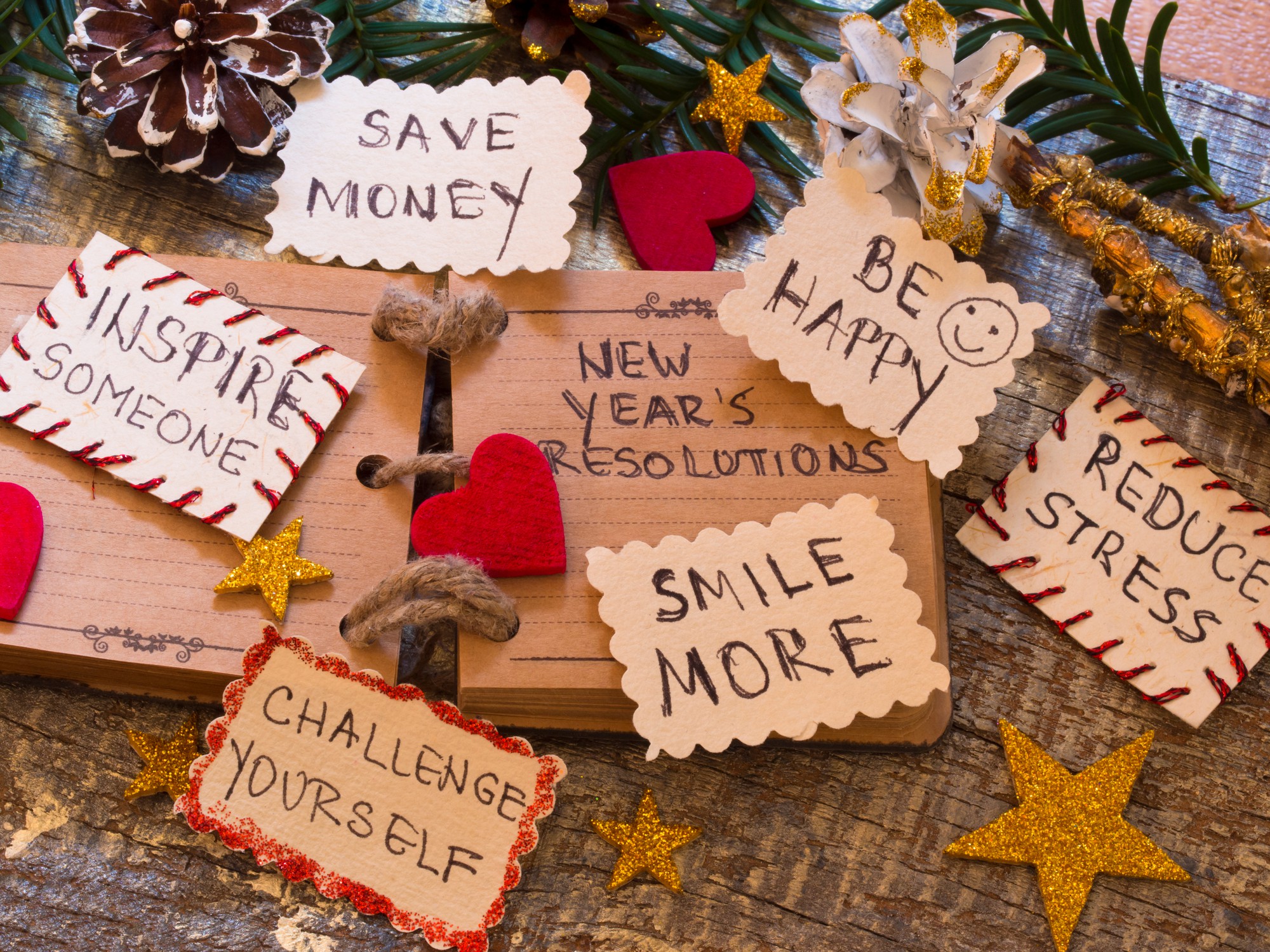As the year comes to an end, we all have things we want to leave behind and things that we hope to add on or bring into the next year. These goals or changes are called resolutions, and sometimes these resolutions are successful while other times they don’t make it all the way through the new year. Both paths are normal, but there are many ways to make some aspects of your resolution more successful.
Some things that can help you make a traditional “resolution” include having a planner or buying post-its and placing them on a poster board where you can write your resolutions and hold yourself accountable. For 2024, move away from the typical way of creating resolutions and attempt a new method: “Dream Boards.”
Sofia Mirabal, a third-year student majoring in molecular cell and developmental biology, has grown up in a family that does these boards every year. The goal of this type of resolution is for “perspectives to change for the New Years.” Mirabal’s family does dream boards every year, a tradition that other families engage in as well. To hold onto your New Year’s resolutions, it is best to be internally motivated, which is why she recommends dream boards. You can hang it in your room and visualize your goals for the next period of life.
TikTok has also taken over with vision boards, even including tutorials and inspiration. Before this new year, try to spend some time creating a vision board.
Isabella Gallagher, a fourth-year student majoring in comparative literature, doesn’t always do New Year’s resolutions, but if she has one she wants to pursue in the upcoming year, she writes it in her planner.
Just remember, if the vision you started the year with doesn’t work the way you imagined then you can try to change it to something easier, simpler or more attainable.
Creating a New Year’s resolution is a tradition for some families, but for others, it is something that has never been done. I asked a few UCLA students what their New Year traditions were growing up and encountered a few who had never made resolutions.
You might come from a family that never did New Year’s resolutions, or maybe you have stopped doing them yourself the older you have gotten. However, there is still a lesson that can be learned from the tradition. “New year, new me” means some people will continue or amplify bad habits before the new year as they expect they will enjoy their last few days of “freedom.” Instead, what should be applied to the habit of making resolutions is learning how to maintain a goal and a vision and sticking to it.
To start this new tradition, take the time to go over what you did well this year and what needs to be improved on. Create a few themes and words that represent what you are hoping for in the new year. Then, start finding goals that match this or look into something you want to add to or even improve in your life this upcoming year.
George Kefalas, a second-year student majoring in physiological science, has never really done resolutions. Why doesn’t he start now? His experience in commercial gyms has shown him that these resolutions tend to be more of a sales strategy, and he would “rather have lifelong goals over a New Year’s resolution,” he said. The fitness and commercial world tends to focus on and make a lot of sales through wellness goals and bettering oneself. Since this idea is so commercialized, it loses effectiveness in certain cases. The idea of having a lifelong goal and every year moving a step closer to it is a more relevant and approachable strategy for anyone, especially those who have more discipline.
Focusing on the lessons you have learned this year is what you leave the year with, and the starting material for new resolutions or goals. The aspect of reflecting is something that many people, especially influencers, take for granted and forget to do. Influencers rush into promoting their new strategies for creating goals for the year, instead of focusing on what they are hoping for and what they learned from past experiences. Take the time to write down what you learned and what you’re grateful for from this past year and use what you write to create a good New Year’s resolution for the upcoming year. Nothing can be called a bad resolution or a bad goal as anything you do is a learning experience and will help you get one step closer to being the best version of yourself!
—
Featured Image via Adobe Stock

